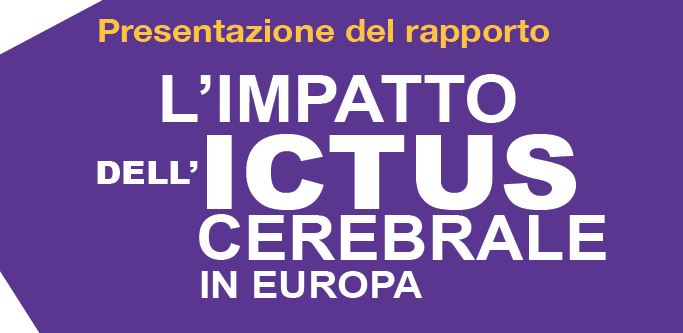
Oct 20, 2017
 Sarah is the International Development Manager at the World Stroke Organization; leading, developing and implementing a programme of capacity building activities for new and emerging patient stroke support organizations (SSOs) around the world.
Sarah is the International Development Manager at the World Stroke Organization; leading, developing and implementing a programme of capacity building activities for new and emerging patient stroke support organizations (SSOs) around the world.
What brought you to Stroke Support Organisation Faculty Tool?
I have been working with local organisations on development projects internationally for a number of years. I have spent time supporting organisations to develop their capacity and skills to deliver quality services and engage in advocacy.
What is your role?
I am the International Development Manager with the World Stroke Organization and Stroke Association UK and we work in partnership with the Stroke Alliance for Europe. My role is to lead the capacity building programme for patient stroke support organisations around the world. This includes supporting organisations to set up, to develop projects and to engage in advocacy.
What makes you excited to be part of this project?
I have witnessed the changes that empowered local organisations can make to the policies and practices that affect people’s lives, most recently this has been patient stroke support organisations from across the world. This project is exciting as it is an opportunity to break new ground in the resources available to enable stroke support organisations to develop their skills and contribute to changes that can improve the lives of people affected by stroke.
How will your background in community development help you in this project?
The community development work that I engage in is based on partnership, solidarity and respect. I seek to understand the context in which stroke support organisations are working and to develop solutions together. As such, in writing content for this online resource, we are encouraging the engagement of members of SAFE to help us ensure that the content is as accessible and relevant as possible. We do not want a resource to be developed in isolation from the concerns and priorities of those who will be using it.
In your opinion why is the patient voice so important?
Those most affected by stroke need to be at the heart of solutions that address the gaps in stroke policy and practice. Again solutions cannot be driven without considering the experiences, insights and views of the people with lived experience. Time and again we see initiatives fail because the expertise of patients was not considered.
How do you see this project and e-learning tool helping SSOs?
I often hear from SSOs that they want tools and resources to help them grow and develop. We have a great opportunity to create a resource specifically for SSOs that responds to their expressed needs, areas of interest and appropriate ways to access information and to learn and take action.
Given the diverse geographical spread of SAFE’s members how to you take into account their unique experiences and context?
SAFE’s diverse membership is a hugely rich resource for the development of this project. We see it as a positive that we can draw on and share such a range of experiences from different contexts, and guidance and insights from different SSOs. There is an opportunity here to make this resource dynamic, by considering these different contexts whilst also including guidance that is transferable – for example whatever context you are in you need to find collaborators for your advocacy work, and whatever context you are in you need to be specific about what your priority activities are and therefore what funds you will need.
What long term issues and benefits do you envisage?
I think this is just the beginning; a long term issue is how we will continue to encourage people to use the resource and how we expand content and reach. I envisage this resource as further strengthening the European stroke patient network and in time the global stroke patient network.

Oct 20, 2017
The Osservatorio Ictus Italia, in collaboration with S.A.F.E. – Stroke Alliance for Europe and with the support of Member of European Parliament, Mr Aldo Patriciello, presented on 17th October 2017 in Rome the Italian translation of the “Burden of Stroke in Europe“, a study done by researchers at King’s College London which presents an in-depth analysis of the state of awareness, information and prevention of this health emergency, care offer, rehabilitation, support and social integration and, in general, the lives of European citizens affected by stroke.

The study, commissioned to researchers at King’s College in London by Stroke Alliance for Europe, looked at data, documents and information from 35 European countries, including Italy, noting significant differences between different care models and disparities in the possibilities of access to therapies. (more…)

Oct 18, 2017
For this year’s World Stroke Day, on 29th October, Blëtz a.s.b.l, a stroke support organisation from Luxembourg organised a conference “I am no longer myself” – When the handicap is invisible – approach to stroke from the neuropsychology perspective.
The event was organised under the patronage of HRH Madam Grand Duchess, Heiress Stéphanie, Mr. Burgomaster of the Commune of Bettembourg, Dr. Jean-Claude Schmit, Director of Health and Dr. Monique Reiff, CHL neurologist.
This conference took place on Sunday, 29th October at 16.00 hours at Château de Bettembourg, in Luxembourg.
At the same time, there was a presentation of the book “You have to be a fighter! Life after a stroke“ by Chantal Keller. (more…)

Oct 17, 2017
At a recently held event in EU Parliament, Geography matters: Inequalities in Access to Stroke Care and Innovation a stroke survivor from Belgium shared his story with the auditorium. He agreed to share it also here, so more people could see his testimony.
“My name is Marc van Dorst.
I live in Wilrijk, a suburb of the beautiful city of Antwerp.
I am 62 years old, happily married and a proud father of 4 children. (more…)

Oct 16, 2017
A new University of Liverpool study, published today in Brain and Behaviour, examines the wide range of visual impairments developed by stroke survivors.
Approximately 65% of acute stroke survivors have visual impairment which typically relates to impaired central or peripheral vision, eye movement abnormalities, or visual perceptual defects. (more…)

Oct 16, 2017
Ischemic stroke patients who do not receive intravelous (IV) alteplase, a clot-dissolving medication, are significantly less likely to survive, according to researchers at Georgia State University.
Ischemic stroke is the most common type of stroke. It occurs when a vessel that supplies oxygen-rich blood to the brain becomes blocked, often by a blood clot. IV alteplase was approved by the Food and Drug Administration as a treatment for acute ischemic stroke in 1996 and is known to reduce disability and improve functionality by restoring blood flow to the brain. Yet two decades later, less than 10 percent of patients receive the treatment. (more…)

Oct 10, 2017
A debate on stroke is emerging in Brussels for the first time, thanks to the joint mobilisation of physicians’ association ESO and the patients’ association Stroke Alliance for Europe – SAFE over the past year. This mobilisation started off with a joint letter sent on November 2016, calling on the European Commission to play a greater role in ensuring access to the current stroke management standards and facilitating cross-border cooperation between member states.
In order to preserve this momentum and garner political support, ESO and MEP Aldo Patriciello have decided to organise an event within the European Parliament, focusing on innovation in stroke treatment and access to it. The primary objective was to bring together representatives from ESO and the EU institutions, physicians and patients with the aim of discussing how to ensure equal access to the current stroke management standards and reduce inequalities within Europe along the whole patient’s care pathway. (more…)

Oct 9, 2017
By Honor Whiteman
Published on www.medicalnewstoday.com
The risk of stroke could be increased by more than a quarter for people who experience migraine with aura. So concludes a twin study recently published in the journal Brain.
According to the Migraine Research Foundation, around 39 million children and adults in the United States are affected by migraine, a disorder characterized by the recurrence of moderate or severe throbbing pain on one or both sides of the head. (more…)

Oct 4, 2017
Jon Barrick, SAFE President, invites stroke advocates from European stroke support organisations to step forward and register for the Munich consensus conference – March 2018
The“Action Plan for Stroke in Europe 2018 to 2030” will be of major importance for the prevention of stroke in Europe and the implementation of adequate stroke services including life after stroke. Two previous consensus conferences on stroke management in Europe (1995 and 2006) laid foundations, and this initiative will modernise the actions that need to be implemented.
The third consensus conference is scheduled to take place in Munich in 2018, building on the experience and the format of the previous conferences. The conference will be organized by the European Stroke Organisation, in partnership with the Stroke Alliance for Europe (SAFE). The World Health Organization will be asked to endorse the conference. (more…)

Oct 2, 2017

Victoria Brewer, SSOFT Project and Organisation Manager
This September, SAFE started developing a standalone tool Learning Management System (LMS) that can be accessed by SAFE members online in any location. This project’s title is
Stroke Support Organisation Faculty Tool (SSOFT)
The SAFE board approved the appointment of Victoria Brewer as SAFE Project and Organisation Director. We asked Victoria about this project, its main features and what would be the expected benefit for stroke support organisations.
(more…)

 Sarah is the International Development Manager at the World Stroke Organization; leading, developing and implementing a programme of capacity building activities for new and emerging patient stroke support organizations (SSOs) around the world.
Sarah is the International Development Manager at the World Stroke Organization; leading, developing and implementing a programme of capacity building activities for new and emerging patient stroke support organizations (SSOs) around the world.







